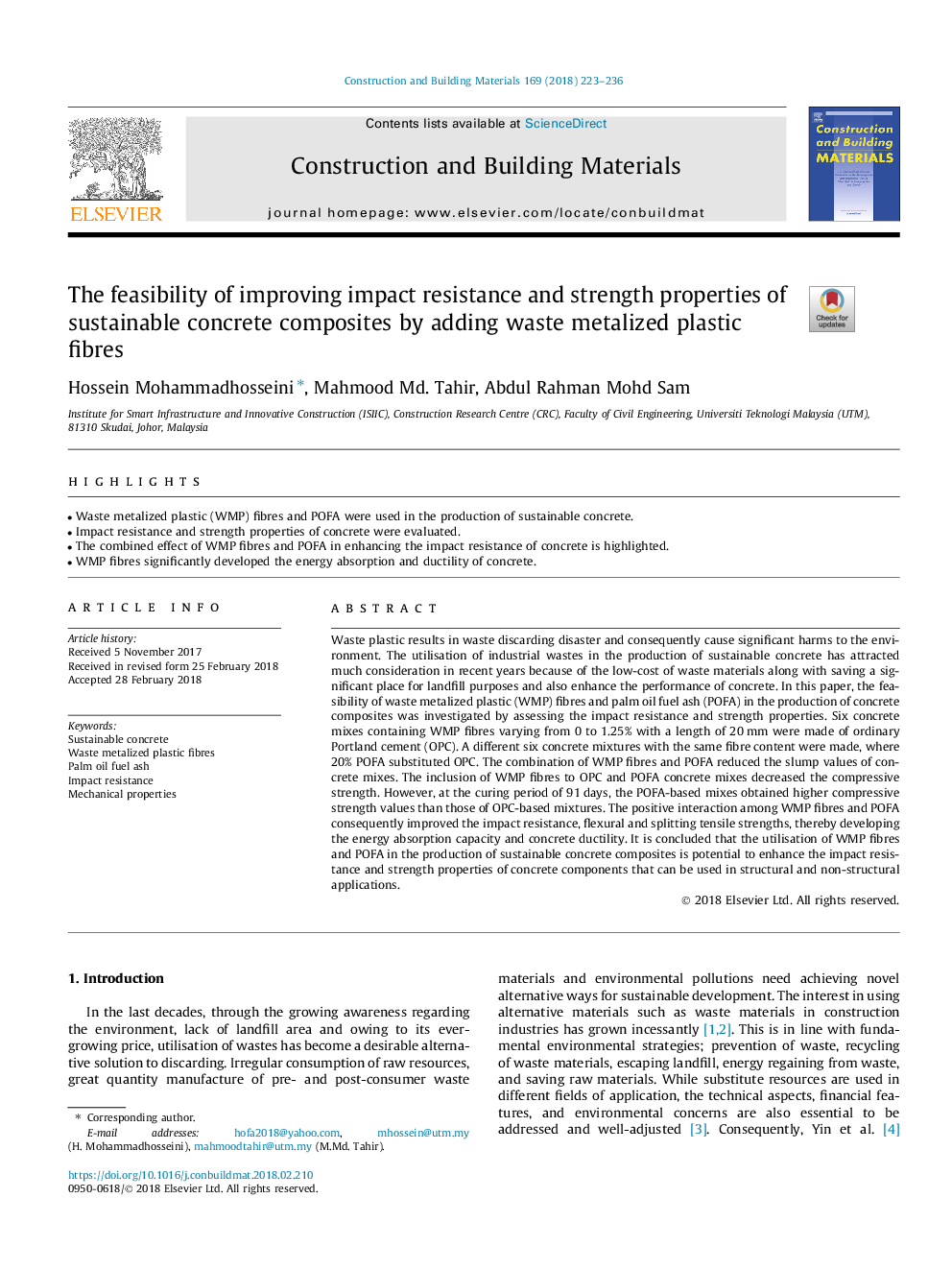| Article ID | Journal | Published Year | Pages | File Type |
|---|---|---|---|---|
| 6714457 | Construction and Building Materials | 2018 | 14 Pages |
Abstract
Waste plastic results in waste discarding disaster and consequently cause significant harms to the environment. The utilisation of industrial wastes in the production of sustainable concrete has attracted much consideration in recent years because of the low-cost of waste materials along with saving a significant place for landfill purposes and also enhance the performance of concrete. In this paper, the feasibility of waste metalized plastic (WMP) fibres and palm oil fuel ash (POFA) in the production of concrete composites was investigated by assessing the impact resistance and strength properties. Six concrete mixes containing WMP fibres varying from 0 to 1.25% with a length of 20â¯mm were made of ordinary Portland cement (OPC). A different six concrete mixtures with the same fibre content were made, where 20% POFA substituted OPC. The combination of WMP fibres and POFA reduced the slump values of concrete mixes. The inclusion of WMP fibres to OPC and POFA concrete mixes decreased the compressive strength. However, at the curing period of 91â¯days, the POFA-based mixes obtained higher compressive strength values than those of OPC-based mixtures. The positive interaction among WMP fibres and POFA consequently improved the impact resistance, flexural and splitting tensile strengths, thereby developing the energy absorption capacity and concrete ductility. It is concluded that the utilisation of WMP fibres and POFA in the production of sustainable concrete composites is potential to enhance the impact resistance and strength properties of concrete components that can be used in structural and non-structural applications.
Related Topics
Physical Sciences and Engineering
Engineering
Civil and Structural Engineering
Authors
Hossein Mohammadhosseini, Mahmood Md. Tahir, Abdul Rahman Mohd Sam,
